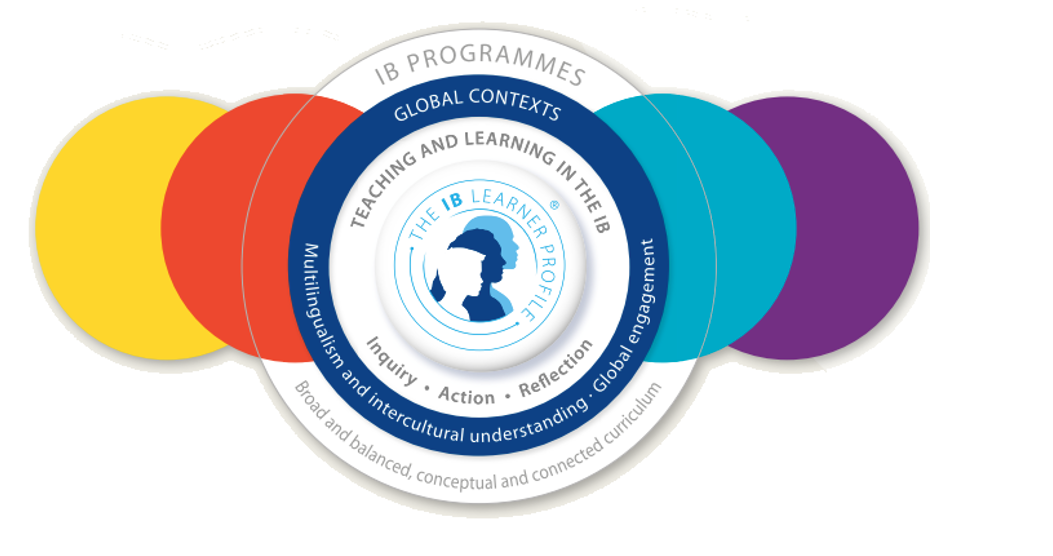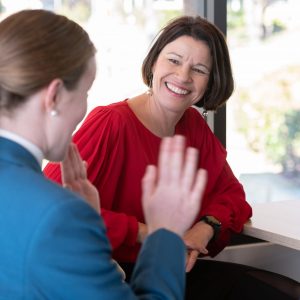Published on June 2, 2023
Over the last two weeks, I experienced quite polarizing conversations with parents. The desires and concerns of these parents appeared opposing as on the surface both sets of parents wanted very different outcomes from their child’s education at Hunter Valley Grammar School. On the one hand, I heard a desire to focus on traditional schooling and teach the content as “that is what my child needs for the HSC”. On the other hand, I heard parents asking for a greater focus on teaching our values and the competencies students need to be inclusive and welcoming of all. On the surface they appear to be two competing priorities; however, they are not. What we teach and how we teach supports the development of the knowledge, values, skills and attitudes students need to navigate the complexity that is life and in so doing be the kind of people the world needs. We need our young people to:
- Understand and appreciate the perspectives and world views of others
- Engage in open, appropriate and effective interactions across cultures
- Take action for collective wellbeing and sustainable development
- Examine local, global and intercultural issues. (see OECD competencies)
To achieve this, students need the core knowledge and skills that are taught in our key learning areas so they can develop informed and evidence-based opinions. They also need to be taught how they can actively work against behaviours and language that cause harm. This is why our Strategic Plan focuses on Excellence in Holistic Education as well as Inclusion and Belonging. For HVGS excellence in Holistic Education is about:
“… maintaining high standards of excellence in learning across academics, social-emotional learning, vocational studies, arts, sports and service. HVGS values the whole student and is committed to providing innovative learning pathways that prepare students for the future while engaging their passions and challenging them to be global citizens who seek to make a difference in their world.” (Read the HVGS Strategic Plan HERE)
For HVGS excellence in academics is key, as is developing the passions of our students and their sense of agency to create change in the world.
Our focus on inclusion and belonging is about creating a culture. In our strategic plan, we state:
“HVGS is committed to building the systems and structures that ensure everyone is cared for, valued, and recognised for their unique identities and experiences. This involves building and sustaining a strong culture of trust and shared ownership for the flourishing of students and staff.”
We also say that the “impact on learning” of this is that “When staff and students feel like they belong, have a sense of agency at school and feel that their perspectives are valued, learning happens for everyone.”
A focus on traditional content knowledge is not at odds with building a culture of belonging and agency. These are not polarizing ideas, or opposite ends of the spectrum in terms of the purpose of education but perspectives that need to be embraced and included in how we evolve as a school.
Recognizing the unique identities and experiences of all students, and ensuring all feel cared for and valued, underpins learning. It is inclusive of students who are gifted and talented – we have launched a more rigorous scholarship programme with that in mind, we are reviewing our Elite Athlete Programme and are in the process of finalizing our GAT Policy. This year we will also be reviewing and expanding our Inclusion Policy.
However, we have more to do in the inclusion and belonging space. This week I have heard from students who were belittled because of their ethnicity or skin colour. Some of these students have said “But don’t worry about it; it was a joke. I’m ok with it”, only to go on to share with me that they get angry after a while about what is being said to them. It is imperative that we stay focused on holistic education and creating a culture of belonging. The former is where we can teach the competencies and skills our students need to recognize racism and other forms of discrimination, speak out against it and modify their own behaviours to ensure they are not part of the problem. Inclusion and Belonging in our Strategic Plan is about developing the systems and structures that support a values-based education for all students.
To achieve this, we need to make sure we teach the content of our courses within a framework that equips students with the knowledge, skills and competencies to be inclusive. The IB programmes provide us with a framework that ensures learners go beyond the subject matter. As an IB Continuum School, our curriculum content needs to be locally and globally relevant. Students are required to explore complex problems by engaging in deep inquiry, growing their understanding of where and how to take action, and reflecting on the impact of their words and actions. Developing intercultural understanding and ensuring a broad, balanced and connected curriculum is central to being an IB World School.

To support our development in this space, we started working with Dr Eeqbal Hassim in 2022 on building the intercultural competencies of our staff and reviewing our policies and practices in light of the intercultural development continuum.
This continuum is research-based and used globally to support individuals and teams in building stronger inclusive cultures. The work can at times be confronting and HVGS has a steering group of staff working with Dr Hassim on auditing our practices and policies, identifying an action plan based on this audit and developing an inclusion framework with clear goals. Part of this process has involved the steering group completing the Intercultural Development Inventory and having coaching conversations with Dr Hassim. This has helped us set goals as individuals and as a team that moves us towards the upper end of the continuum, which is called “adaption”. Adaption describes an organization or person who:
…embraces and values cultural differences. Has complex experiences of cultural diversity. Can perform a ‘cultural dance’ and move in and out of cultural perspectives. Identifies cultural nuances and responds accordingly. Questions and responds to perspectives on systemic and structural prejudices and discrimination.
All of us move up and down the Intercultural Development Continuum depending on what is happening in our lives and how this intersects with our own values and beliefs. Our goal is to be able to move between and embrace different perspectives – find our shared common ground. For example, as a secular school, we have a wonderful opportunity to embrace all faiths and ensure whether you are Christian, Muslim, Jewish, Hindu or of another faith (or not belonging to a faith at all) that you have a seat at our table. What unites us all as a community, regardless of faith, is a commitment to living our values.
Recently I chaired an accreditation visit at a school in Victoria. This was an accreditation visit for the Council of International Schools (CIS). CIS has a deep commitment to inclusion and as part of the accreditation framework, they ask schools to engage with future aspiration questions such as these:
- How could the school’s guiding statements promote more inclusion, diversity, equity and anti-racism?
- How should the school more effectively monitor, evaluate, and review its definition of high-quality learning and teaching to improve the learning outcomes for the diversity of students involved?
- How can the school more effectively ensure that the values associated with global citizenship and intercultural learning are shared and an expectation of all constituent groups within the school? (See the Council of International Schools)
I find these questions pertinent for HVGS as we aspire to ensure all students understand how to recognize and combat inequity and be champions of inclusive practices.
Lastly, the 16th June marks our second Uniquely You Day, which is a wonderful opportunity for us to recognize and celebrate the diversity that is HVGS and to show how we can embrace difference and learn from each other.

